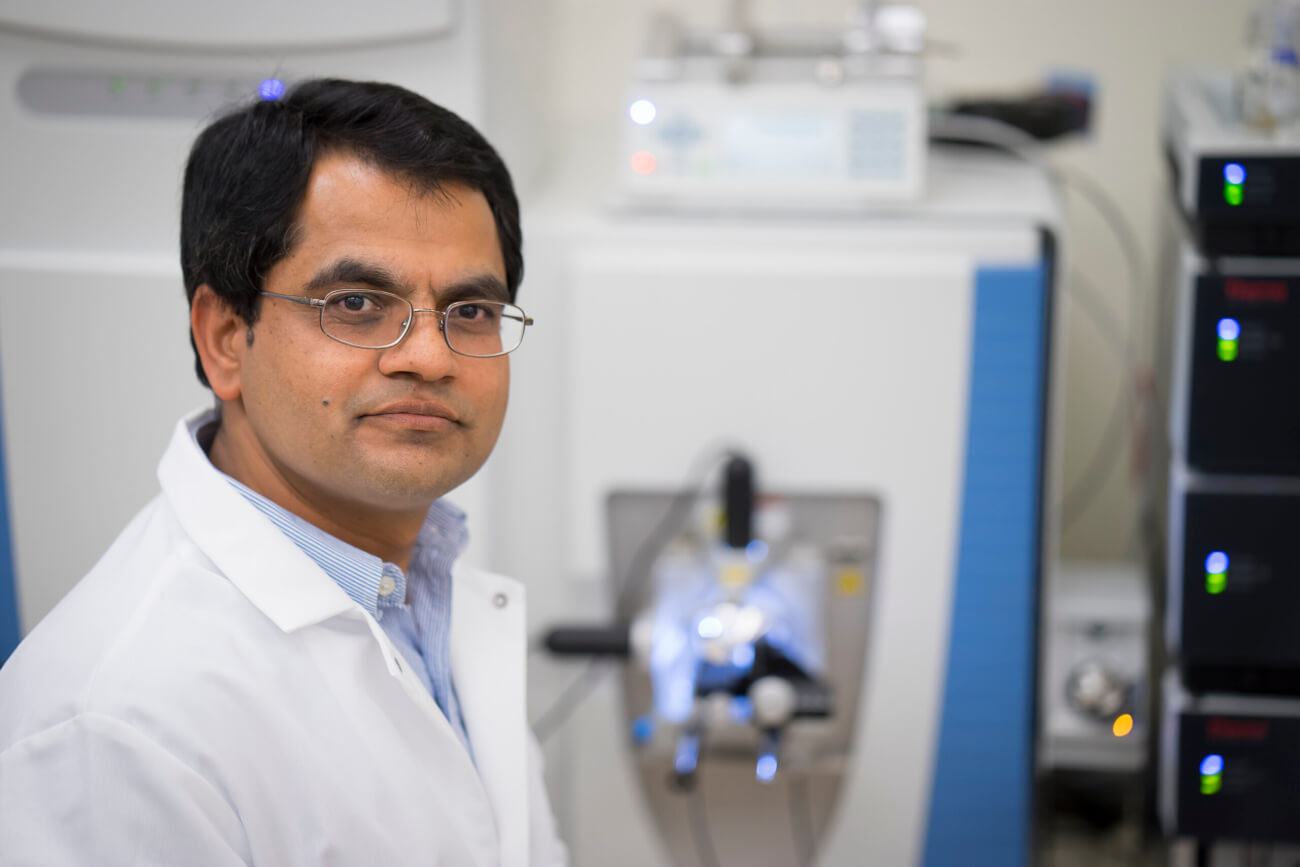A recently published article in ASBMB Today, the member magazine of the American Society of Biochemistry and Molecular Biology, details groundbreaking research led by Uma K. Aryal, research associate professor in the Department of Comparative Pathobiology.

Aryal and his colleagues conducted a multi-enzyme digestion approach that revealed age-related phosphoproteome changes in the brains of young-adult, middle-aged, and old mice. Their work, published in the Journal Molecular & Cellular Proteomics, represents a tremendous step forward in understanding the association between aging and the dysregulation of proteins.
Aryal’s research is crucial for therapeutic strategy development that assists in preventing or reversing neurodegenerative diseases, such as Alzheimer’s and Parkinson’s.
The ASBMB Today article by author Hallie Blevins, published in the Jan. 21, 2025 issue, highlights how Aryal’s interest in proteomics began while he was completing his PhD in Japan. There, he used proteomic techniques to examine enzymes from a white-rot fungus that degrades persistent aromatic compounds. After coming to Purdue, Aryal went on to start his own proteomics program that focuses on the connection between neurodegenerative diseases and senescence, which refers to the process of aging.
As quoted in the article, Aryal said, “That’s where I switched. There is a lot of interest in neurodegenerative diseases, and there is a lot I can contribute to that area.”
The research revealed that aging is directly associated with increased phosphorylation and accumulation of neurodegenerative proteins. With the incidence of neurodegenerative diseases expected to double by 2050, Aryal and his team’s research is vital in understanding the mechanisms that lead to these illnesses.
Aryal said the article was a welcome surprise since this kind of attention in such a high-profile publication for this field will significantly add meaningful new exposure to his team’s research program.

